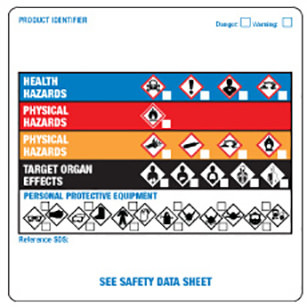The Occupational Safety and Health Administration (OSHA) has proposed to update and/or clarify dozens of provisions in its regulatory standards, within its General Industry, Construction, and Shipbuilding Standards, as the latest round in an ongoing “Standards Improvement Project.” The proposals were published in the October 4 edition of the Federal Register, and comments are due by December 5. Depending on the comments (and perhaps on the outcome of the Presidential election), OSHA plans to finalize changes early in 2017.
Read MoreAudit, Compliance and Risk Blog
OSHA Proposes Technical Changes To Dozens Of Requirements
Posted by Jon Elliott on Tue, Nov 08, 2016
Tags: Employer Best Practices, Health & Safety, OSHA, Employee Rights
Ontario Court Rejects Employee’s Claim That Director Owed Duty of Care to Employee
Posted by Ron Davis on Thu, Oct 27, 2016
The Ontario Psychological Association is a not-for-profit voluntary association that aims to advance the practice and science of psychology through advocacy and education. Charlotte (Carla) Mardonet was hired by the Association in 1990 to manage its affairs and administer its finances and money. In Ontario Psychological Assn. v. Mardonet (2016 ONSC 4528 (Ont. S.C.J.)), the Court granted the Association’s motion to strike the part of Mardonet’s counterclaim alleging that the Association and its officers and directors owed Mardonet a “duty of care and a fiduciary duty which they breached as a result of their failure to provide her with the supervision, management, support and guidance that was part of their responsibility” and claiming full indemnity and contribution from the directors for any amounts that Mardonet might be liable to the plaintiff. The defendant’s counterclaim was issued in response to the plaintiffs’ lawsuit alleging the defendant had “misappropriated the funds [$1.6 million] and converted them to her own benefit and the benefit of her family members and friends,” with the assistance of her immediate family.
Read MoreTags: Employer Best Practices, Employee Rights, Canadian, directors, directors & officers
The Equal Employment Opportunity Commission (EEOC) administers and enforces most national anti-discrimination laws. As part of these responsibilities, EEOC issues formal regulations, and a host of less formal guidance documents – some directed to employers, some to employees, and/or some to the agency’s own personnel. In August 2016, EEOC reissued EEOC Enforcement Guidance on Retaliation and Related Issues (“the Guidance”), describing its approach to situations where employees claim they’ve suffered retaliation for asserting rights against discrimination under the laws EEOC administers, or even just for questioning workplace rules and situations.
Read MoreTags: Employer Best Practices, Employee Rights, EEOC, directors, directors & officers
New Rules For Labor Law Compliance By Federal Contractors
Posted by Jon Elliott on Thu, Sep 22, 2016
In July 2014, President Obama issued Executive Order (EO) Number 13673, establishing a series of reporting and procedural requirements for federal contractors, inducing them to provide “Fair Pay and Safe Workplaces” to their employees. Some requirements are specific in the EO, while others were left for clarification by revisions to the Federal Acquisition Regulation (FAR), for contracts subject to these requirements. (I blogged about the EO here). None became effective in 2014, but instead they have awaited the FAR revisions. The revised FAR has been issued effective October 25, 2016, for appropriate contracts issued by the Department of Defense (DoD), General Services Administration (GSA) and National Aeronautics and Space Administration (NASA). The new requirements will be phased in, covering contracts and subcontracts for goods and services greater than $50 million immediately, and those greater than $500,000 effective April 25, 2017.
Read MoreTags: Employer Best Practices, OSHA, Employee Rights, EEOC, directors & officers
Constructive Dismissal Claims Due to Employer Conduct
Posted by STP Editorial Team on Thu, Jul 21, 2016
Managers who abuse employees and employers who tolerate such abuse may be subject to law suits and face significant financial penalties if their actions are found to constitute constructive dismissal.
Read MoreTags: Employer Best Practices, Employee Rights, Canadian, directors, directors & officers
Director Who Decided Not To Be Involved In Business, Still Liable For Employees’ Unpaid Wages
Posted by Ron Davis on Tue, Jul 19, 2016
Mensa Williams was listed as a director in the incorporation documents for Ambrosia Elite Corp., a company run by his brother, Admin. Ambrosia was incorporated in 2007, but did not actively conduct its retail clothing business until 2008. Ambrosia became insolvent in 2014, leaving its employees with unpaid wage claims. The unpaid wage claims were pursued under Ontario’s Employment Standards Act, 2000 (ESA), and when those claims were unsatisfied, an order to pay was issued to Ambrosia’s directors including Mensa Williams.
Read MoreTags: Business & Legal, Employer Best Practices, Employee Rights, directors, directors & officers
Applying A Hierarchy of Controls to Increase Workplace Safety
Posted by Jon Elliott on Tue, Jun 28, 2016
Every workplace poses at least some potential hazards to workers, but every set of hazards is unique. To effectively identify and manage those hazards, an organization should apply logical and systematic approaches. A number of related approaches are available. A few months ago I blogged about a proposal by the Occupational Safety and Health Administration (OSHA) to revise the Safety and Health Program Management Guidelines it promulgated back in 1989 (click here) – comments were due in February and OSHA is considering what to do next. OSHA’s proposal focused on overall program design, so included important structural considerations – who’s in charge, how are expectations communicated, etc.
Read MoreTags: Employer Best Practices, Health & Safety, OSHA, Employee Rights, EHS
OSHA Requiring Employers to Submit Injury and Illness information
Posted by Jon Elliott on Tue, Jun 14, 2016
The Occupational Safety and Health Administration (OSHA) requires most employers to prepare and maintain records of occupational injuries and illnesses as they occur (I&I Logs). OSHA also requires employers to post an annual I&I Summary in each “establishment” within their workplaces by February 1, summarizing that workplace’s I&Is during the previous calendar year. Delegated state-run programs impose comparable requirements. (I summarized these requirements here). Most of this information remains with employers and their employees, so it never gets used for analyses of workplace trends or to help OSHA evaluate areas where additional regulations might be most helpful.
Tags: Employer Best Practices, Health & Safety, OSHA, Employee Rights
The first significant outbreak of the mosquito-borne zika virus in the Americas was announced in Brazil in May 2015. Public health officials in the United States began to prepare responses, and have accelerated efforts in reaction to reports that the virus is spreading into U.S. territories, beginning with Puerto Rico and Florida and expanding northward. Late in April, the Occupational Safety and Health Administration (OSHA) and the National Institute for Occupational Safety and Health (NIOSH) entered the fray, by issuing joint “Interim Guidance for Protecting Workers from Occupational Exposure to Zika Virus.” The rest of this note summarizes that Guidance.
Read MoreTags: Employer Best Practices, Health & Safety, Employee Rights, EHS
The Occupational Safety and Health Administration (OSHA) requires employers to protect their employees against possible exposure to “bloodborne pathogens (BBPs).” OSHA’s Bloodborne Pathogen Standard prescribes protections for workers occupationally exposed to blood or other potentially infectious materials (OPIM). Healthcare workers are the most obvious beneficiaries, but emergency responders and others may also be regularly at risk to these exposures.
Read MoreTags: Employer Best Practices, Health & Safety, OSHA, Employee Rights, Environmental risks, EHS, Hazcom, pharmaceuticals










